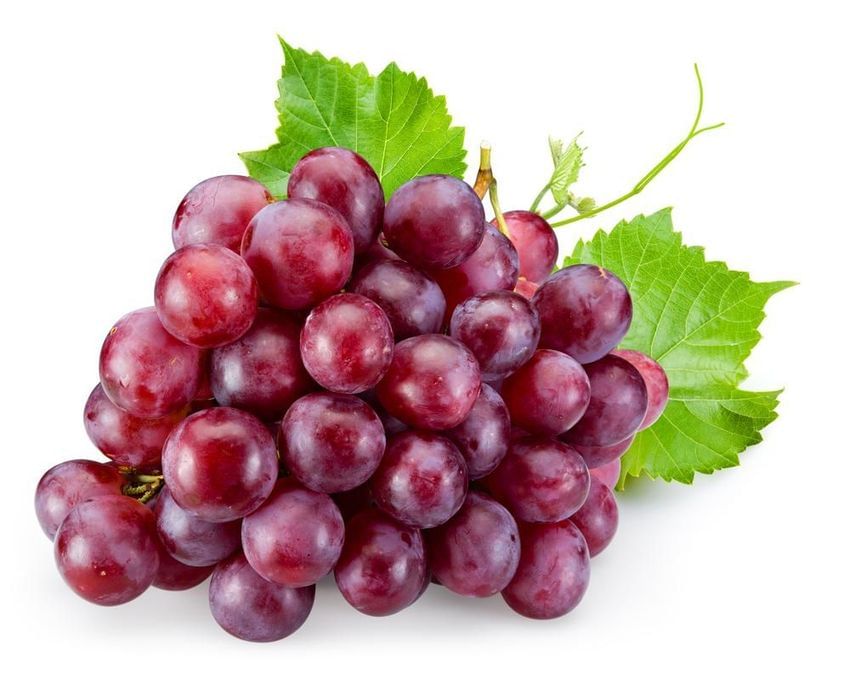Grape seeds are small, but packed with concentrated nutrients. They are perfectly safe to eat, and what’s more, eating them regularly can be a healthy addition to your diet. You can even turn them into oil. They are full of Omega 3 fatty acids.
Omega 3 is a healthy fat that the heart and brain need to be healthy. They also contain high levels of vitamin A and E, which benefit the skin.

Nutrients
The seeds also have vitamins C, D, and polyphenols. Polyphenols are compounds rich in antioxidants. Antioxidants fight free radical damage. Free radical damage is a natural product of aging that causes the body to wear out quickly.
The nutrients found in grape seeds strengthen and protect cells as well as accelerate their renewal process. Eating a handful or more grape seeds per day is a great way to give your body extra nutrition.
Also Read: Snowball Melon & its Health Benefits
Phytoestrogens
The seeds also have high levels of phytoestrogens. Phytoestrogens are plant estrogens, which are weaker than those formed in the human body.
These plant hormones help regulate your hormonal balance. In addition, phytoestrogens have been linked to a low incidence in female breast and ovarian cancers. (Check out Resources to read the studies done on phytoestrogens.)
Preventing heart disease
Grape seeds also offer protection against heart disease. The antioxidants in seeds and grapes strengthen and protect blood vessels. When these are damaged, and as you age, they can lead to a heart attack. Studies have shown that the seeds lower blood pressure, according to the University of Maryland.
Taste
Grape seeds have a bitter taste. You can eat them whole or powdered. The powder can be used as a medicine to stimulate the immune system. For example, you can add the seed powder to a protein shake or broth. The seeds of red grapes generally have a stronger flavor.
Types
There are several types of grape seeds. There are two main groups, those for table grapes and those for wine. There are more than 50 different varieties of grapes within these two types, such as the palette. The greens are the ones that are commonly consumed. Other varieties are ruby, red, and Thompson. The red ones tend to have the largest seeds.
Nutrition
The seeds of grapes are rich in numerous minerals, but their most potent nutrients are antioxidants like OPCs.
- Vitamin E
- Linolenic acid
- Oligomeric proanthocyanidin complexes
- Other phenolic compounds
- Potassium
- Copper
- Phosphorus
- Calcium
- Zinc
- Magnesium
- Iron
Nutrients per Serving
In their natural form, the seeds of grapes contain fiber, minerals, protein, water, and oil. By weight, these seeds have approximately:
- 35 percent fiber
- 3 percent minerals
- 11 percent protein
- 7 percent water
- 20 percent oils
Potential benefits of eating grape seeds
Grape seeds are rich in different plant compounds that may serve additional health benefits when are eating grapes.
For instance, they’re high in proanthocyanidins, an antioxidant-rich polyphenol that gives plants their red, blue, or purple color (5, 6, 7, 8 ).
Cell reinforcements are compounds known to decrease irritation and shield your body from oxidative pressure, which can at last prompt metabolic conditions and constant sickness.
Grapes contains melatonin too, which becomes most concentrated in the seeds as grapes ripen (8).
Melatonin is a hormone that regulates circadian rhythms like your sleep pattern. Ingesting melatonin may help induce fatigue and sleepiness and improve sleep quality.
How to Use Grape Seed
There is no standard dose for grape seed extract, although some doctors in European countries have historically prescribed 100 to 300 mg per day.
You should take grape seed extract according to the instructions on the label, keeping in mind that products are not made to equal qualities or concentrations.
Can you eat grape seeds while pregnant
Grapes aren’t recommended for consumption during the final pregnancy trimester. They are known to generate heat inside the body which is not good for both the newborn kid and the mother.
Fruits to avoid during pregnancy:
Papaya– It tops the list for obvious reasons. Raw or semi-ripe papaya contains latex which can induce premature contractions and that can be dangerous for your newborn kid.
Pineapple– These are also not recommended to pregnant women as they contain certain enzymes that alter the texture of the cervix which could induce premature contractions.
Grapes– Avoid consuming too much grapes during your pregnancy to stay clear of any complications.
Did you like this article?
-
10

